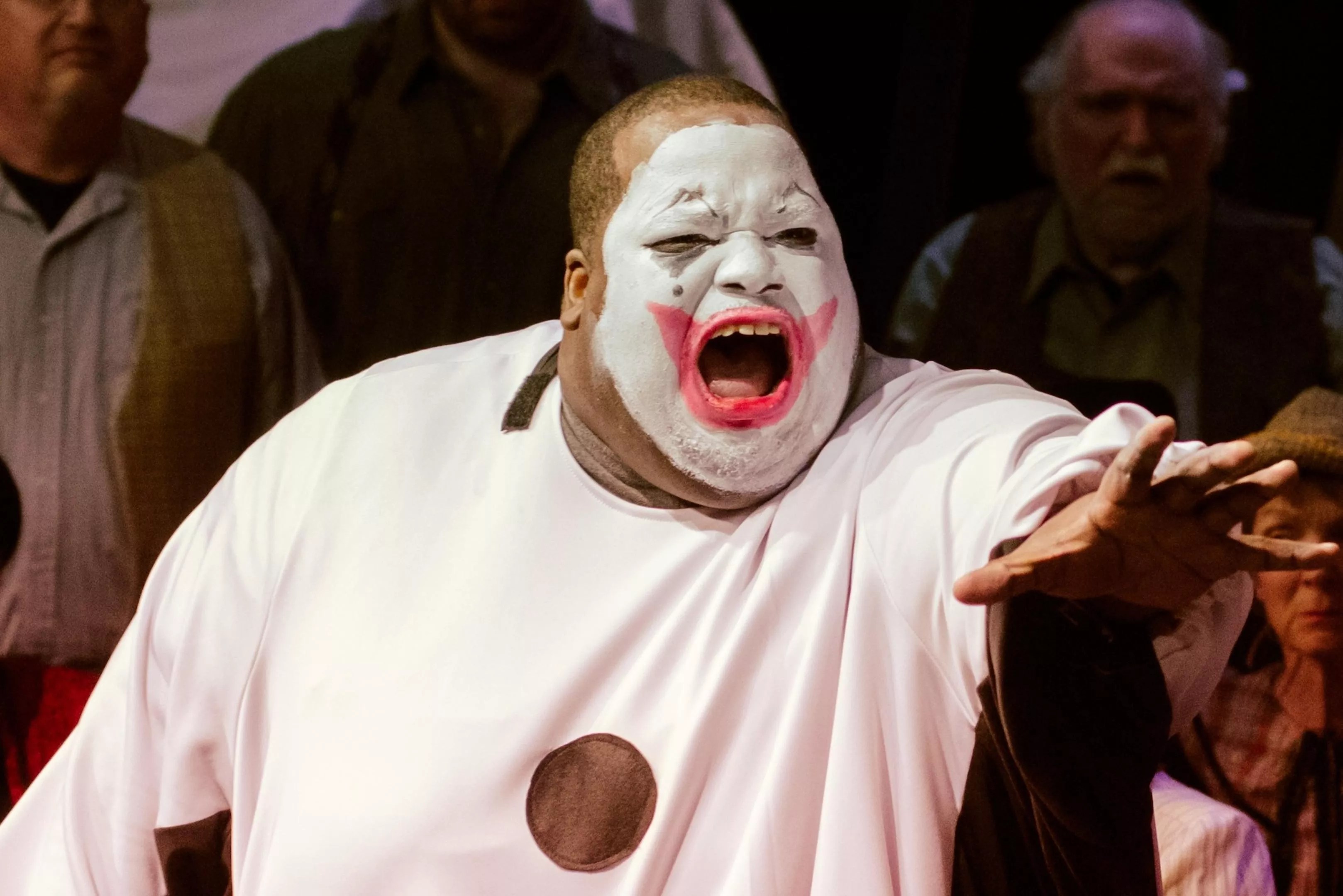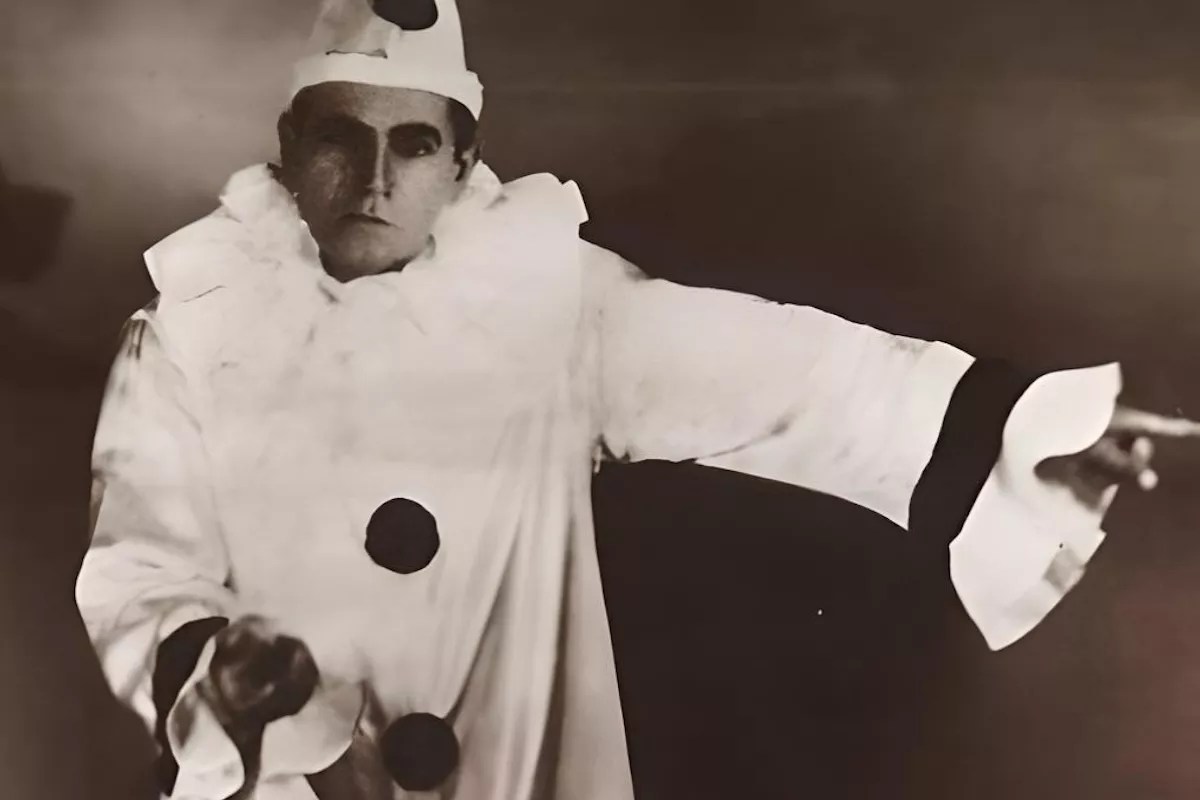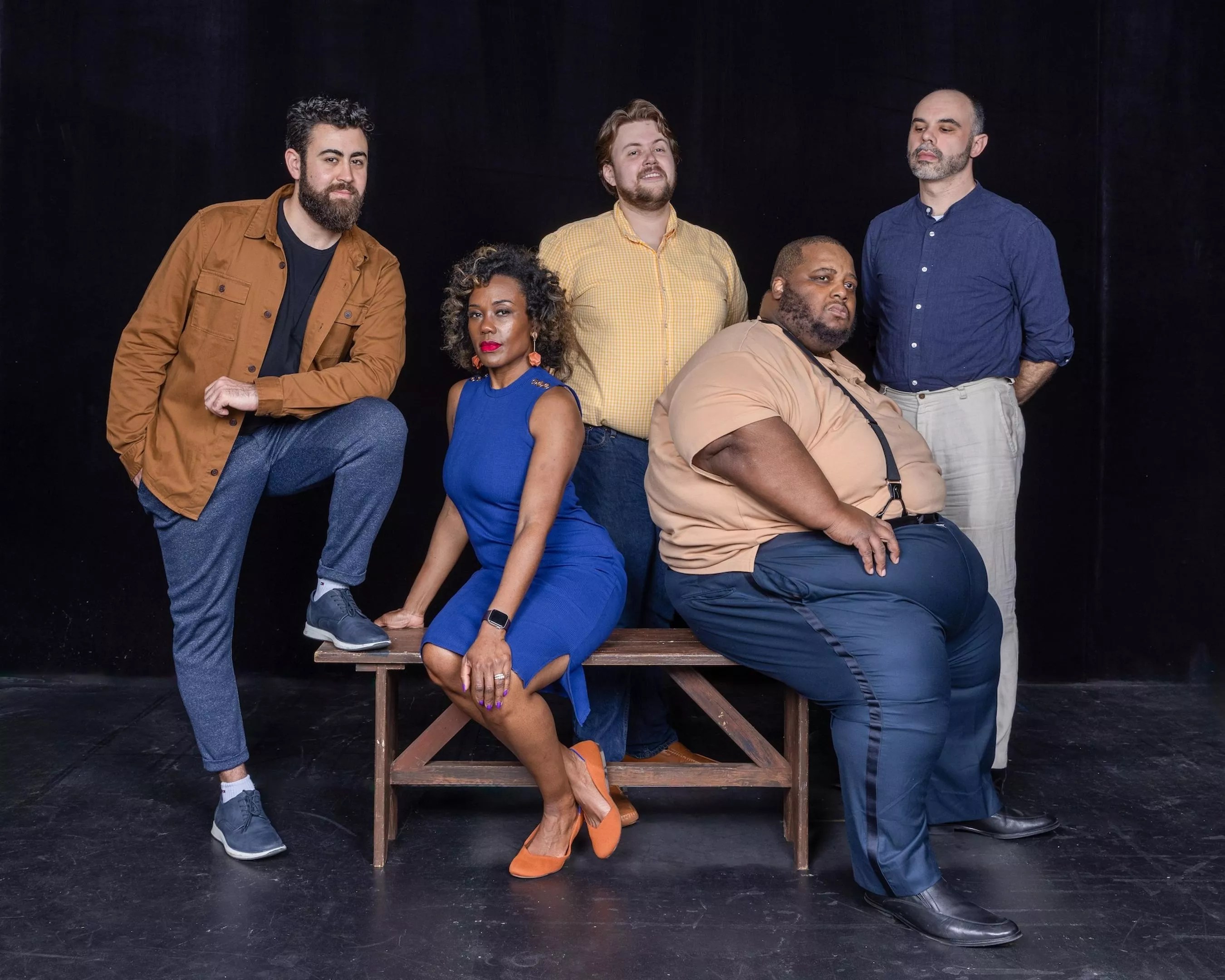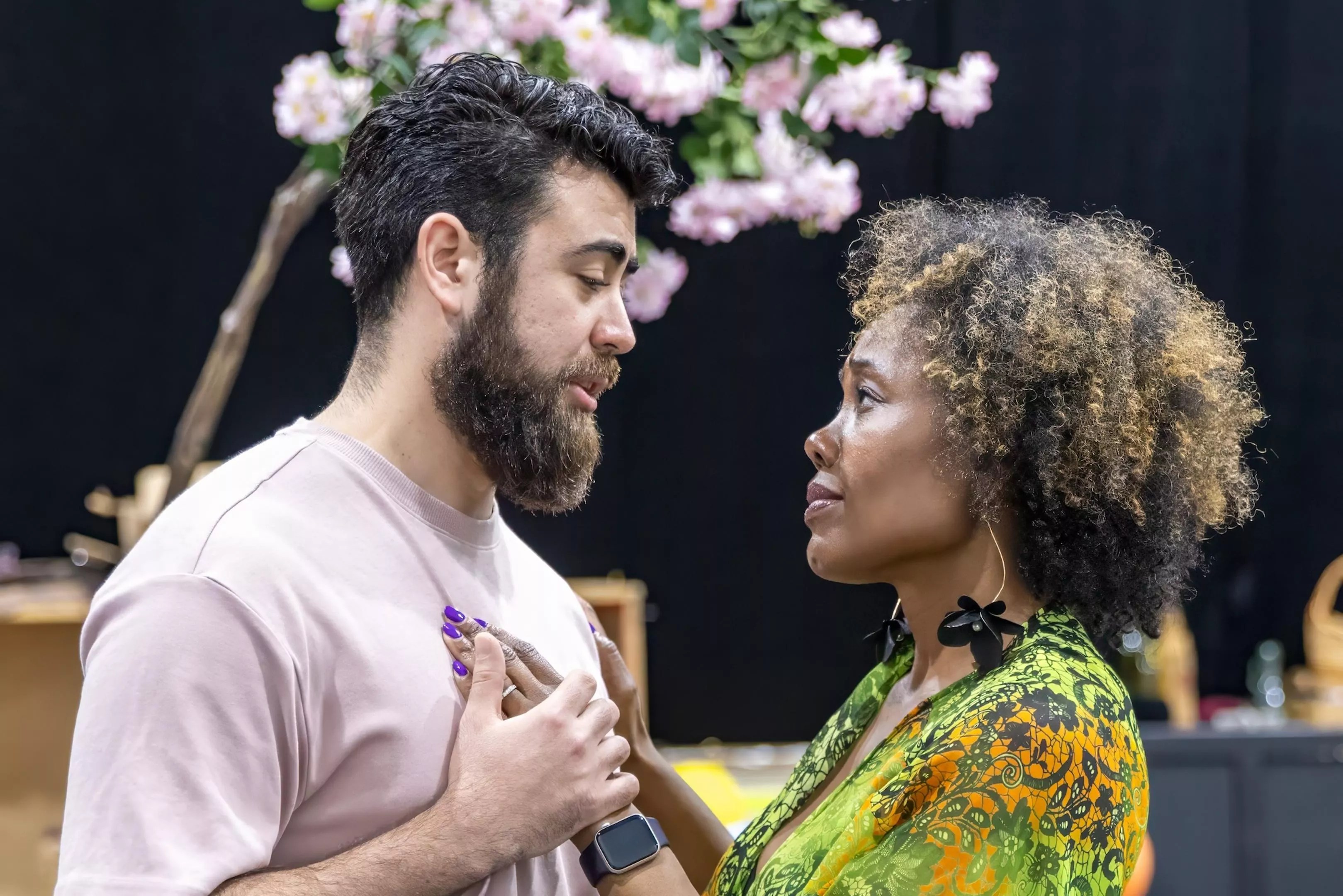
Photo by Peter Serko

Audio By Carbonatix
When Florida Grand Opera opens the curtain on its midseason production, I Pagliacci, it will be close to 82 years to the day that the Miami Opera Guild, the precursor to Florida Grand Opera, performed its inaugural production of Ruggero Leoncavallo’s Italian opera.
While the anniversary may evoke some nostalgia, today’s audiences will see a different I Pagliacci than the one from eight decades ago.
Performed at the concert hall of Miami High School on Flagler Avenue for only one performance on February 14, 1942, the production starred founder of the Opera Guild, tenor and voice teacher Arturo di Filippi, as Canio, the leader of a commedia dell’arte theatrical company who is driven to murder his actress wife and her lover.
In FGO’s production, which will be performed on Saturday, January 27, Sunday, January 28, and Tuesday, January 30, at the Adrienne Arsht Center for the Performing Arts in Miami, and Thursday, February 8, and Saturday, February 10, at the Broward Center for the Performing Arts in Fort Lauderdale, tenor Limmie Pulliam plays the role.
In an interview while in Miami rehearsing for I Pagliacci and just before a guest appearance with New World Symphony, Pulliam agrees with the assessment of great singers before him – from Mario Lanza to Enrico Caruso to Luciano Pavarotti to Placido Domingo – that the role is a challenge. The character must embody many moods, from the comedy of a clown to the drama of jealousy that turns to murderous rage. There’s the spotlight, too, on what has become one of the most recognized tenor arias and one of the most powerful and emotional songs in the world of opera, “Vesti la giubba.”
Pulliam acknowledges those things, but there is also another challenge many tenors before him may not have faced. Pulliam is a Black singer-actor in the role, which is not the traditional casting.

Arturo di Filippi as Canio in Greater Opera Miami’s I Pagliacci in 1942
Florida Grand Opera photo
“Whether the actors are Black or white or Italian or whatever, I believe the drama remains the same,” he says. “But I do think, based on our personal biases in life, the way some may look at the character of Canio, and in his moments of anger, in his fits of rage that kind of overcome him…it hasn’t strayed far from my mind whenever I am doing this role that thought of the racial stigma.”
The stigma he refers to, he says, is that of the “angry Black man.”
He says that “nine times out of ten, I could be cast as Canio opposite a white female. To think of the racial dynamics of a Black male taking the life of a white female on stage is not lost on me,” he says. While his leading lady in the production is Black (soprano Kearstin Piper Brown makes her Florida Grand Opera debut), Pulliam says it doesn’t much change the dynamic he feels and that “giving into the drama” is a bit difficult at times.
“While you want to give the audience the best show possible and present the characters in a realistic way that the style requires, there still is some hesitation there from a personal standpoint. It’s kind of a Catch-22 situation for me not to sacrifice the character for the personal feelings I’m dealing with…It’s allowing myself to take on the character but not allowing the character to take over me.”
The son of a preacher from Kennett, Missouri, the 48-year-old singer graduated from the same high school as Grammy Award-winning singer Sheryl Crow, whose mother was his piano teacher. He stepped back from opera for more than a decade, dropping out of the music industry in the early 2000s after a promising career as a tenor. He had made a vow to himself: “If this stops being fun, it’s time to do something else.”
His career path began early. He sang in his church’s choir, but Pulliam remembers the moment when he fell in love with opera. He recalls that when he was 14 or 15, his choir teacher asked him to learn “Una furtiva lagrima” from Gaetano Donizetti’s L’Elisir D’Amore.
“She presented me with the sheet music and a cassette tape recording of Luciano Pavarotti singing the aria. I started by listening to that and learning the song. And then, I continued to listen to other pieces on the cassette tape, and the music just started to grow on me. I became enamored with it,” says Pulliam, who ended up winning a state competition for his singing of the aria.

The cast of Florida Grand Opera’s I Pagliacci: Kearstin Piper Brown (Nedda), Limmie Pulliam (Canio), Eleomar Cuello (Silvio), Joseph McBrayer (Beppe), and Robert Mellon (Tonio)
Photo by Eric Joannes
When he saw a live opera performance on public television, that was it. “I had a knack for this, and when I realized I could actually go to school to do this, I was so excited.”
He was accepted at the Oberlin Conservatory of Music in Ohio, where he studied with Richard Miller, a professor of singing who is internationally known as one of the most influential voice pedagogues in history.
“It was life-changing for me to be able to study with someone of his caliber,” says Pulliam.
After his studies, he ventured out into the professional world of opera for about two years, he says. He had always struggled with his weight. Pulliam recalls that the shaming became too much at one point. “It was after several instances where you would get people in positions of power complimenting you on your voice but then making negative comments about your size.”
He initially thought he’d take a six-month break from singing, but it turned into 12 years. After founding a security company, he provided bodyguard services to several notables. “For most of that [time], even though I wasn’t singing, I was still involved in entertainment…working as a bodyguard for concert tours.” He doesn’t like to drop names, but Pulliam did reveal Sheryl Crow and Cedric the Entertainer were clients. Pulliam also had a stint in politics (working on Barack Obama’s first campaign), and it was a chance encounter that led him back to singing.
“I was doing some events, and we had invited a local beauty queen to sing the national anthem. She ended up getting cold feet and not showing up. So, my boss looked at me and said, ‘I remember on your resume, it said you sang opera. Why don’t you sing it?'”
In 2009, he decided it was time to hire a singing teacher, and by 2012, he won a competition with the National Opera Association.

Eleomar Cuello as Silvio and Kearstin Piper Brown as Nedda in rehearsal for Florida Grand Opera’s 82nd-anniversary production of I Pagliacci.
Photo by Eric Joannes
His career has been on the rise ever since. Last year, he made his Carnegie Hall and Metropolitan Opera debuts, along with stints with the Los Angeles Opera, Cleveland Orchestra, and Fort Worth Opera. This will be his second time playing the role of Canio; in 2016, he sang it with the Vashon Opera in Washington.
Pulliam says he is enjoying his second chapter of success, but loss has also followed him. His father died on May 8, 2022; on May 21, he made his debut with the Cleveland Orchestra singing Otello. Six months later, on November 14, his eldest sister died, and a little more than a month later, on December 17, Pulliam made history in Aida as the first Black tenor to sing the role of Radamès in 130 years of the Metropolitan Opera.
He admits that the comeback has been an emotional rollercoaster.
I Pagliacci (The Clowns) was written in 1892 in a style of Italian opera, verismo (“realism”), writing that flourished in the last decade of the 19th Century. Jeffrey Marc Buchman, the director of FGO’s I Pagliacci, says the prologue delivered by Tonio is rich with meaning, and it’s a place for audiences to pay close attention.
“The prologue resonates with me…Tonio is telling the audience, ‘We, these actors, we feel real pain, we have real suffering in our lives, and even though we put these masks on for you to perform whatever this scene is that we are compelled to have to play for you, we have our own lives that are causing [emotions].’ I think it’s a great reminder that these are real human beings, the opera singers up there playing the roles of Canio, Nedda, Silvio, and Tonio going through huge dramatic arcs. These wonderful cast members also have their own lives that are going on, and we should be aware of that when they are performing. It’s just a reminder of the humanity that lives within the artist behind any role on stage,” says Buchman.
– Michelle F. Solomon, ArtburstMiami.com
Florida Grand Opera’s I Pagliacci. 6 p.m. Saturday, January 27; 3 p.m. Sunday, January 28; and 8 p.m. Tuesday, January 30; at Adrienne Arsht Center for the Performing Arts, 1300 Biscayne Blvd., Miami; and 7:30 p.m. Thursday, February 6, and Saturday, February 10, at the Broward Center for the Performing Arts, 201 SW Fifth Ave., Fort Lauderdale; 800-741-1010; fgo.org. Tickets cost $22 to $240.